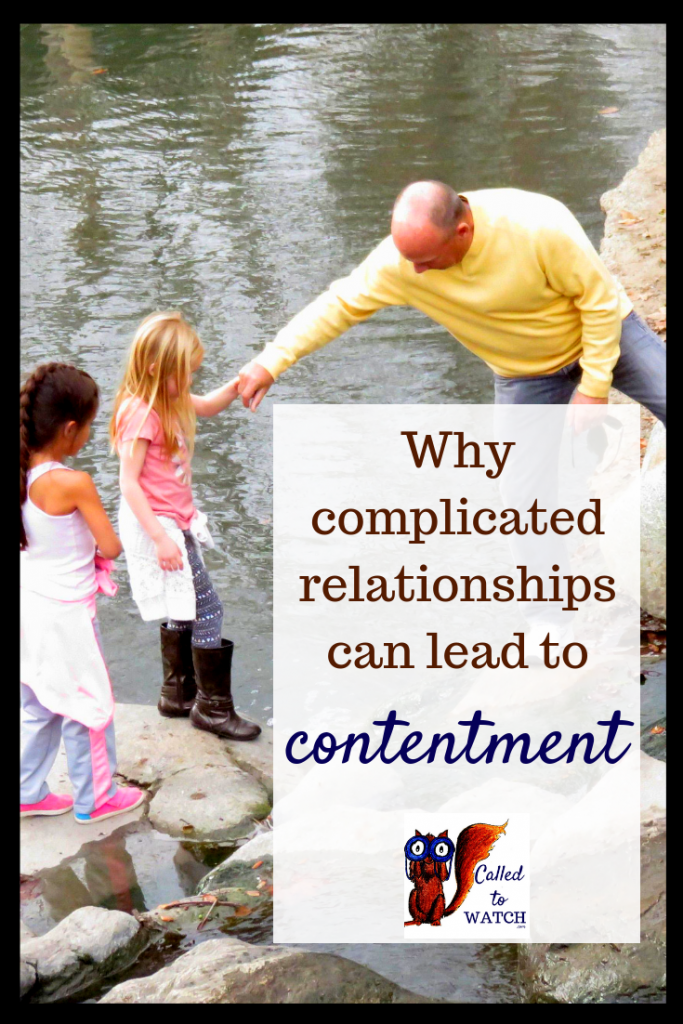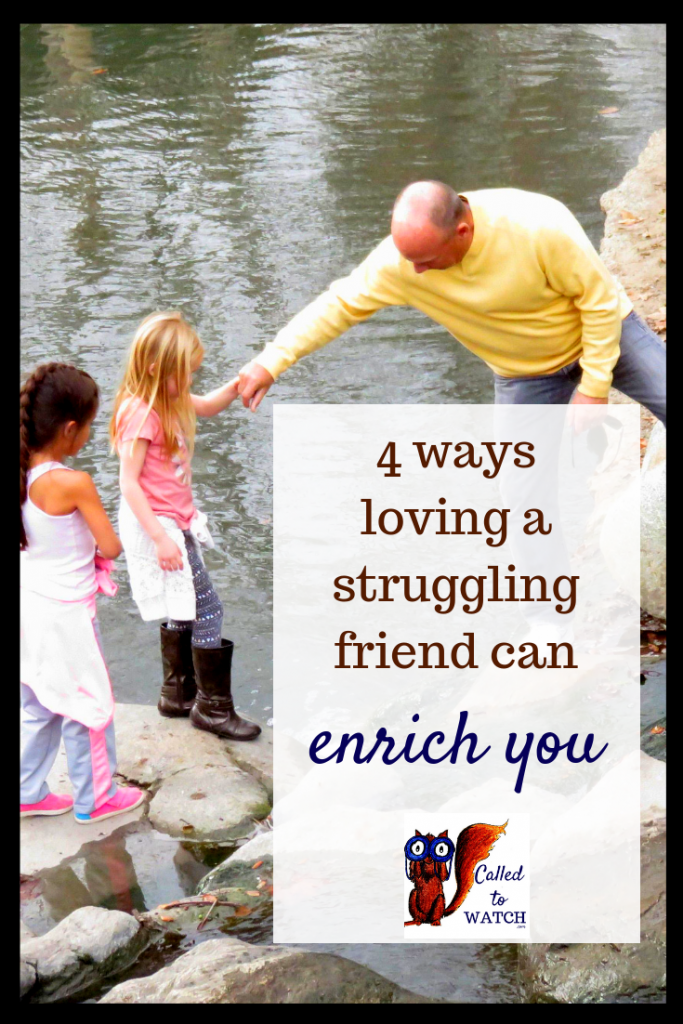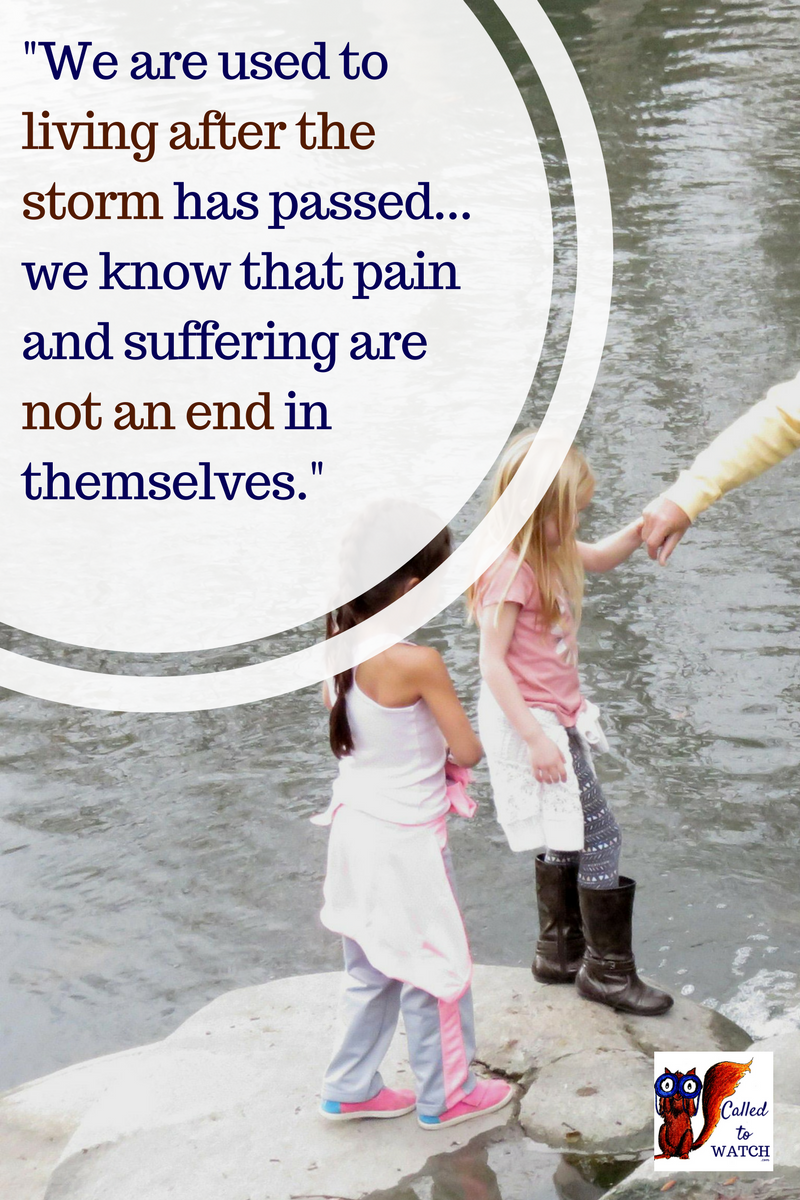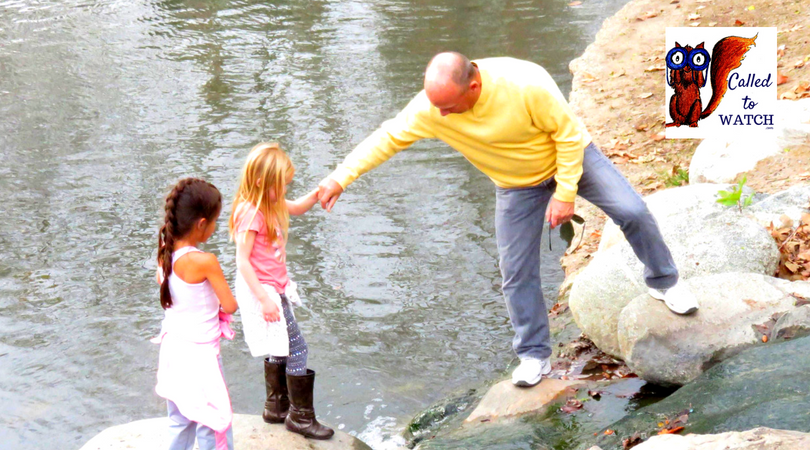Being there for someone who is struggling can bring it’s own particular temptations. We can begin to feel entitled or special, because we are doing something that is hard. We may be inclined towards bitterness or envy.
Yet it’s important to remember the flip side of the equation. While Watching can present us with temptation, it can also be a huge benefit!
Watching benefits us like an electric fence.
Watching, like every circumstance, narrows our experience of life. Let me give an example:
The man who is happily married may be less tempted to cheat on his spouse. His marriage is a fence.
Yet the same man, because he is happily married, may be tempted to rip off his company to get more money to build a desirable lifestyle.
His fence, while keeping certain ‘dangers’ in, keeps other temptations out.
So how can Watching benefit us personally?
1: Watching can help us be more thankful
When you are a Watcher life is uncertain.
How will our Loved One be when we arrive home? Will today be a good day? When will their pain end? Will it end?
When questions like these become routine they tend to crowd out other worries. Suddenly things like holidays and new clothes and should-we-have-beef-or-chicken? matter much less.
If you’ve almost lost someone, whether or not they snore or leave a mess becomes the least of your fears.
As Watchers we have learnt never to take another person for granted because we don’t know how long we will have them for, or in what condition.
As Watchers we learn that every tearless day is a gift and every painless moment a blessing.
Sometimes for us, thankfulness comes a bit easier.
2: Watching can help us be more content
I think sometimes for us as Watchers, contentment comes easier – or perhaps our greed is simply smaller.
After all, the woman who sleeps on the street is going to be more content with a tiny hotel room than the millionaire who lives by the water.
When simply leaving the house can be a struggle for our Loved One it is easier to be content with a home-cooked meal, or an hour of ‘family time’ or a too-short holiday.
Is the man who only obsesses over buying one cow more ‘holy’ than the man who craves a herd of a thousand? Maybe not, but sometimes when you start with less there are more opportunities to be content.

3: Watching can help us appreciate small gestures
In a society where we are constantly searching for the best Christmas present, feel pressured to bring a ‘gourmet’ meal to every gathering, or appear ‘cheap’ if we only give someone a hug for their birthday, we Watchers have an advantage.
We have seen the uselessness of material possessions in the face of tragedy.
We are acutely aware of their inability to take away pain, to alleviate suffering or even to simply last.
We are struggling with flesh and blood and tears. With are fighting with bed pans and lines at the chemist and figuring out how to explain the health of our Loved One to distant relatives.
On this gritty backdrop, grandiose gestures of perfection can seem ridiculous.
We have witnessed firsthand the value of a hug, a card, a prayer. A smile, a nod, a clenched hand or simply sitting in silence, closing the door softly, filling up the water jug – these are our frequent currency as Watchers – and what a different currency to those around us.
4: Watching can help us realise that tragedy is not an end.
As Watchers we are used to living after the storm has passed. We’ve weathered the deluge and now we live in the aftermath and pick up the pieces, year after year.
We know that after a crisis, such as a diagnosis or realisation, life goes on. Everything changes, but nothing changes. That is the nature of chronic illness.
This knowledge is a curious gift. Hard won, and hard to dispense.
To many without our experience, tragedy seems to be the end. They cannot grasp living beyond or through suffering. To do so appears overwhelming and utterly impossible – but not for us.

Why we need to acknowledge that Watching is morally beneficial
The importance of pointing out these specific benefits is not to claim they apply to every single one of us.
There are no generalities. We are all individuals and our circumstances are differ. Yet the truth is, we do experience life differently to non-watchers, and this is not a bad thing.
We are in a position to learn certain truths about contentment, gratitude, perseverance and small gestures. These truths are valuable, and we have a duty to share them. When we share our life experiences with others we enrich humanity, and we enrich ourselves.
We must learn from each other. We must live out what we have learned as a result of our unique position. You may not be called to preach en-mass to the universe, but you can still be a voice that questions cultural assumptions about consumerism, health and productivity.
Humanity needs these original voices. We need people to ask, “is that really important?” or “can we do this a different way?” or “why do we lay so much value on this?”
Will you be one of them?
// Have you experienced any of these benefits? Would you consider them valuable? How can you share them with others?
Don’t be a silent reader, join the conversation and comment!
The companion post is:
The moral dangers of “being there” for someone with a chronic illness

PS: Enjoyed the post above? Get the next one delivered straight to you! Sign up for email notifications
I’m also on Facebook, Pinterest & Twitter! Meet me there for more interesting reads, resources and community.


I’m so happy I read this post today. As a Watcher, I often feel lonely, tired, sometimes hopeless, being surrounded by many non-Watchers in my circles of friends. As you have pointed out, sometimes I do see as being someone with a family member with a lifelong “disability” is like having a concrete barrier from those without the same experience. Yet your words have reminded me that we all have our own barriers, temptations and struggles. And there are many saving graces that we as Watchers can be thankful for. Being thankful because when we go home and find no one is crying… content over a simple, peaceful family dinner because no one is in pain… I think you described it perfectly that this all begins by recognising our unique situation. This barrier we have isn’t the end. We can learn so much amidst of all of these sufferings. Your words have encouraged me to change my mindset on being a Watcher. Thank you, thank you!
No – thank you ‘Anonymous’! It’s so encouraging to me to know that perhaps my experiences and thoughts aren’t as different from others as they sometimes seem, and that perhaps they can be helpful to some one else. I definitely hold on tightly to the reality that unique does not mean ‘wrong’ or ‘abnormal’ – because the same God creates all situations and purposes.
Your season in life at the moment sounds hard, and like many things, without a clear end in sight. I prayed for you just now 🙂